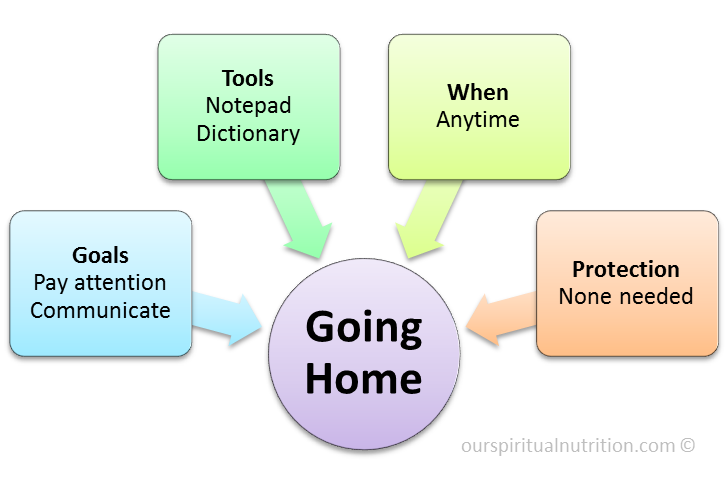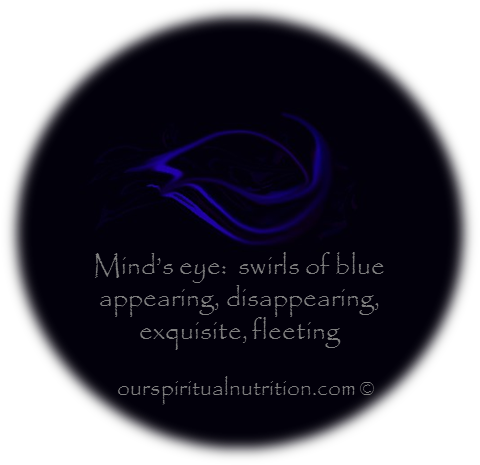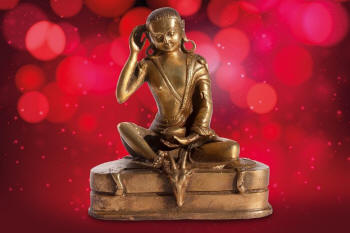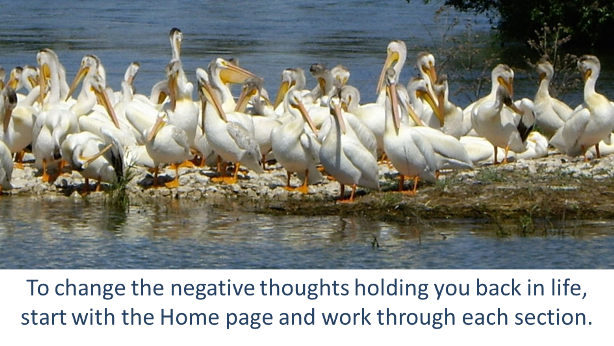About this page
Android phone - Tap More. Select Find in page
Android tablet - Select menu in top right, select Find on page
iPhone or iPad, Chrome - Tap More. Find in Page
Mac - Command+F
Safari with iPhone - Tap Share icon, scroll to Find on page
Windows PC, Chromebook, Linux - Ctrl+F
Going home means getting centred
Figure 10 “Going Home” is two-way communication
What makes this technique different?
What are the goals?
Table 02: Reduce negative thoughts
Figure 11: About meditation
What tools are needed?
Before beginning a session
Haiku 5-7-5: Connecting
How to Go Home (meditate)
Exercise 1
Figure 12: Have a notepad nearby
Figure 13: Use a dictionary
Exercise 2
Figure 14: Buddha listening
Next steps
Self-test
Going home means getting centred
The Universal Intelligence has taught me a new way to meditate. It is called “Going Home”, to illustrate the idea of consciously connecting with our Creator via our guide. One of the best ways to learn about ourselves is to meditate in this new way. That means getting centred and paying attention to our thoughts. This takes practice - lots of practice; but as my guide says to me whenever I’m learning a new skill, "Practice makes progress."
Food for thought
Prayer is one-way communication - us talking to Source. Meditation or "Going Home" is two-way communication: us talking to Source, and Source talking to us.
Figure 10: "Going Home" is two-way communication
What makes this technique different?
You may be aware at some level that there is a guide or angel with you, but did you know that we can communicate with them, and they with us? Going Home practices two-way telepathic communication with our guide. This means paying attention to our thoughts, rather than shutting them down in a quest for silence. Having the intention to stop thinking can actually prevent the communication that can best help us. This technique builds spiritual self-awareness, which is the ability to know why we think the things we think and believe the things we believe and, especially, why we do the things we do.
What is the goal?
The aim is to concentrate on paying attention to our thoughts so that we may practice two-way communication with our guide. As we learn to identify our thought patterns, we see where work is needed to resolve inner conflicts. This enables us to gradually reduce and refine our negative thoughts and increase our positive thoughts.
Table 02: Reduce negative thoughts and increase positive thoughts
| Reduce these | ... | Increase these |
| Condemnation | ... | Compassion |
| Fear | ... | Faith |
| Greed | ... | Gratitude |
| Guilt | ... | Joy |
| Hatred | ... | Love |
| Jealousy | ... | Mercy |
| Judgment | ... | Patience |
| Lying | ... | Peace |
| Manipulation | ... | Respect |
| Resentment | ... | Sacrifice |
| Revenge | ... | Tolerance |
| Self-righteousness | ... | Trust |
| Worry | ... | Truth |
Figure 11: A new form of meditation

Before beginning a session
All we need is the intent to allow our guide to work with us. With this method, the many requirements of some other forms of meditation become obsolete. Especially, there is no need to stop thinking. Stopping or blocking our thoughts prevents the purposeful two-way communication that will help to find enlightenment.
Our physical body has a way of interrupting or disturbing our conscious thoughts, so get fully comfortable. Why? If we are hungry, our thoughts will focus on food and eating, or on liquids if we are thirsty. If we are full, our body will be focused on digestion. If our muscles are not relaxed, we will squirm to find a comfortable position. Scratch all your itches. Blow your nose or rub your eyes if need be. In other words, make sure that all your physical needs are tended to, to give yourself every possible advantage.
Once you are settled and comfortable, aim to close your eyes. This will help you avoid focusing on objects outside of self, and better able to focus on your thoughts.
When and how often should it be done?
Aim to practice Going Home twice daily (once upon awakening and again before going to sleep). Twice daily meditation helps develop the pattern of regular communication with your guide. After a week or two, you will be able to find your centred space quite easily. Once we come to rely on our guide’s presence, Going Home becomes second nature. We need only ask for assistance with whatever we are doing. If we have a question to which we don't know the answer, we can ask our guide. We can communicate with our guide at any time of day or night, under any circumstances. If we can hear our thoughts, we can hear our guide.
What about protection from negative energies?
No protection is needed because there is no such thing as negative energies.
How long should a session last?
Spend five to ten minutes, or as long as you are comfortable and able to stay focused on paying attention to your thoughts. If you lose focus or forget to pay attention for a few seconds, just return to listening to your thoughts. Listen as if your thoughts are words being spoken by someone else. Falling asleep when starting out is quite normal. Try to be patient with yourself throughout the learning process. After all, it takes time and effort to learn any new skill.
What can happen when I am centred?
Pay close attention to your mind and body. Your thoughts may sound different once you are centred, or you may feel your energy change. Your guide may also give you physical signals to confirm their presence.
Eyes closed
If you are comfortable closing your eyes, go ahead and do so. You will know that you are in the right space when your eyelids flutter lightly. One of the special effects that can happen when we Go Home is a visual impression - in our mind’s eye - of what I call "swirlies". This is a series of silvery-blue or purple lights and shapes that shrink and grow and dance across our field of vision in our thoughts, as if the inside side of our eyelids is a projection screen. It is beautiful to see, and is a signal from our guide that we have reached our centred space.
Sometimes in meditation the guides will use words like "thee", "thy", "thou", etc. when working with us. Other times they might address us as "Child of God", or "Child". This is not meant in any way other than lovingly, respectfully. When this happens, it is completely unmistakable that it is the Universe speaking, and not just our own thoughts. We can be certain then that there is specific information waiting for us, and that questions need to be asked in order to access it. Then we need to work with our guide to fully understand the message.
Eyes open
If you are not comfortable closing your eyes, leave them open; however, this can indicate an unresolved issue that will prevent you from achieving the best possible results. Open eyes can prevent you from being able to focus on your thoughts. Also, if your eyes are open, your eyelids will not flutter and it will be harder to see the swirlies or visions that your guide may wish to give you. Aim to create a safe place for yourself to relax with your eyes closed. Start with a few seconds and build up to meditating comfortably with your eyes closed.
Whether your eyes are open or closed though, pay close attention to your mind and body. Your thoughts may sound different once you are centred, or you may feel your energy change. Your guide may also give you physical signals ranging from a feeling of warmth or coolness, to shivers or tiredness, to sneezing.
How to Go Home (meditate)
Exercise 1
Get centred
Going Home requires getting centred. The goal of this exercise is to find your centre, pay attention to your thoughts, and gain a sense of peace and harmony, even if only for a few moments. Paying attention to your thoughts is an important step in gaining spiritual self-awareness and changing thought patterns.
This is achieved by finding a place of calm within self. Go there simply by being willing. Sounds too simple, right? But it really is just that easy:
- Begin by finding a quiet place where you can be undisturbed for five or ten minutes.
- Once you are settled comfortably, take a slow deep breath in, and gently let it out.
- Ask for assistance. Direct your request to the Universal intelligence
- Pay attention to your thoughts.

Haiku 5-7-5: Connecting
Mind's eye: swirls of blue
appearing, disappearing,
exquisite, fleeting
Being centred can also be called “observation mode”, whereby we simply pay attention to all that is happening around us and within us. Go there simply by being willing. Sounds too simple, right? But it really is just that easy. Begin by finding a quiet place where you can be undisturbed for five or ten minutes. Once you are settled comfortably, take a slow deep breath in, and gently let it out. You may find it helpful to ask the Universal Intelligence for assistance upon starting.
There is no need to concentrate on your breathing, or to breathe in any particular fashion. There is no need for any special equipment or materials. If you choose, burn a candle or play some soothing music to become relaxed. However, no rituals are required in order to communicate with the Universal Intelligence. In fact, performing rituals can indicate fear, since fear says that something terrible will happen if the ritual is not performed. Then ritual becomes superstition, which is nothing more than fear that has become habit. Aim to maintain the state for gradually longer periods of time, even up to 30 minutes.
Food for thought
A couple of suggestions for Going Home music:
Youtube - Ambient music
Youtube - Anugama - Healing
Youtube - Anugama - Shamanic Dream
Youtube - Tibetan Monks Chanting Om

Haiku 5-7-5: Whispers
Our name is whispered,
inaudible to our ears
yet felt by our soul
What happened?
What did you experience? Was there a message? Were there colours, or was there a picture? Was there a particular feeling, such as a sensation of warmth or cold, tiredness, relaxation, peace? If there just seemed to be a jumble of thoughts, try to recall at least a few of them.
Actions
Whatever is experienced, questions must be asked to find the correct interpretation and to gain full understanding about what has been given. Why? Since the spiritual Law of Free Will requires the Universal Intelligence to tell us what we want to hear, or what we already believe to be truth, it is up to us to make the conscious choice to set aside our preconceived ideas and beliefs. In fact, recognizing all of our beliefs becomes crucial if we want to change our thoughts patterns.
After practicing this twice per day for a week or two, you will be able to find your centred space quite easily. Then it will be time to go on to Exercise 2.
Use a notepad
Whatever happens, record your experiences in a journal of some sort. It will serve as a reminder of your journey toward spiritual self-awareness. More importantly, information that does not currently make sense may do so as you become more adept. Interpreting meditation and dream symbols and messages requires that we recall the details. The guides can help with this if we invite them to do so. Even seemingly insignificant details can be an important part of the message. Ask questions of your guide to find out what the people or things represent spiritually (see Section 4-4). Hint: Keep paper and pen or pencil near when meditating or sleeping to record information while it is fresh.
Use a dictionary
If a word keeps repeating in your thoughts, refer to a dictionary to find all the possible meanings of it. Then ask your guide which meaning applies and listen for the answer. Sometimes our guide’s intended meaning is not what we would normally understand it to be.
Exercise 2
Now that you can find your centred space more easily and are getting used to listening to your thoughts, it is time to start asking some questions. When starting out, it is best to ask simple, straightforward questions. Here are a few suggestions, but feel free to use your own:
- What is my guide's name? How many guides are working with me?
- What is my soul name?
When in a centred state, ask your guide to address you by your soul name. Listen closely. If you do not hear it, ask your guide to spell it for you - one letter at a time, if need be. Please note that soul names are not from any earth language; they are in the Universal language of Truth. - What is my soul's purpose in this lifetime?
Finding your soul's purpose may not be quite so simple. If you have a strong fear or a strong belief, the Universal Intelligence will not interfere with it (because of free will). Your guide may well be obliged to tell you exactly what you want or expect or fear to hear. Take a list of carefully formed questions into meditation and work with your guide to find Universal Truth.
Remember to ask for assistance while getting centred and then ask your question(s). Listen to your thoughts for at least 15 to 30 seconds after each question. Pay close attention to your body too, as your guide may use physical signals to communicate with you.
One of the first questions I asked my guide was, “Why didn’t you protect me?” No answer came, but I did not really expect there to be one. Even if they had answered, they may have said something like, “That is not our job”. That would have infuriated me, and could well have shut down any interest I had in connecting. The Universe has taught me since then that there are certain required life experiences for each of us, and our guide ensures that we meet them.
What happened?
Was there a message? Were there colours, or a picture? Was there a particular feeling, such as a sensation of warmth or cold, tiredness, relaxation, peace? If there just seemed to be a jumble of thoughts, try to recall at least a few of them. Journalize your experiences.
Action
Whatever is experienced, questions must be asked to find the correct interpretation and to gain full understanding about what has been given. Why? Since the spiritual Law of Free Will requires the Universal Intelligence to tell us what we want to hear, or what we already believe to be truth, it is up to us to make the conscious choice to set aside our preconceived ideas and beliefs. In fact, recognizing all of our beliefs becomes crucial when working with our guide. It is a good idea to keep a notepad and dictionary handy.
Figure 14: Buddha listening

"What we think, we become."
Buddha
Next steps
Section 4-1 provides more information about meditation and how the guides communicate with us.
Sections 4-2, 4-3 and 4-4 teach how to interpret colours, numbers and symbols respectively.
Self-test
Click buttons to show or hide content...
- Pay attention to our thoughts
- Communicate with our guide
- Build a working relationship with our guide.
|
Got questions, comments or suggestions? |
Cookies
This site uses Statcounter web analytics to track statistics using a 3rd party analytics cookie. No personal information is stored in the cookie. To set a Refusal cookie for your web browser, visit statcounter.com
© Copyright: Sheila A. McBeath 1999
ISBN 978-1-7753521-2-9
If you print, reproduce or use any of this information, do not alter the content, and acknowledge "Making Change in Our Lives (a workbook)" within your material.
Pay it forward
If the spirit moves you, please donate to your favourite charity or perform community service.
Terms of use
The information in this website and/or e-book is provided as spiritual information only. It is not to be used or relied upon for medical diagnosis or treatment. Consult your healthcare provider before making healthcare decisions. Your use of this web site and/or e-book means that you accept these terms.
Last Updated 20250124
page top ↑
page end


